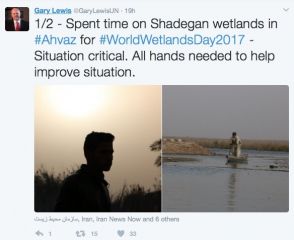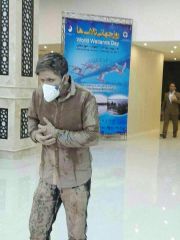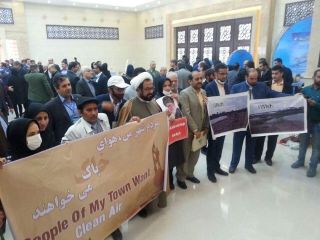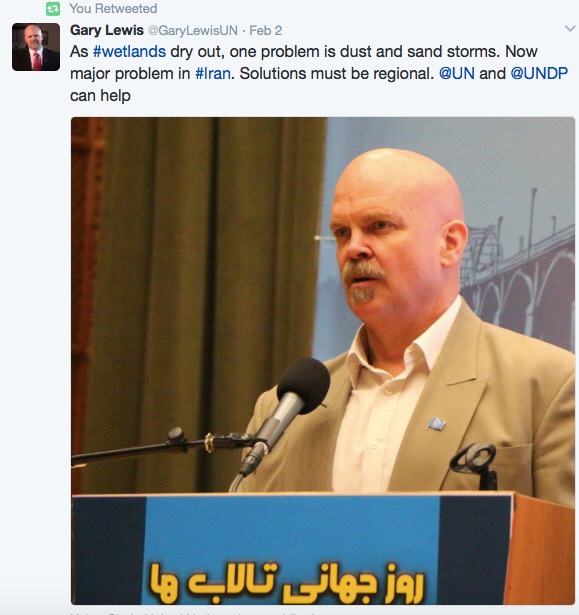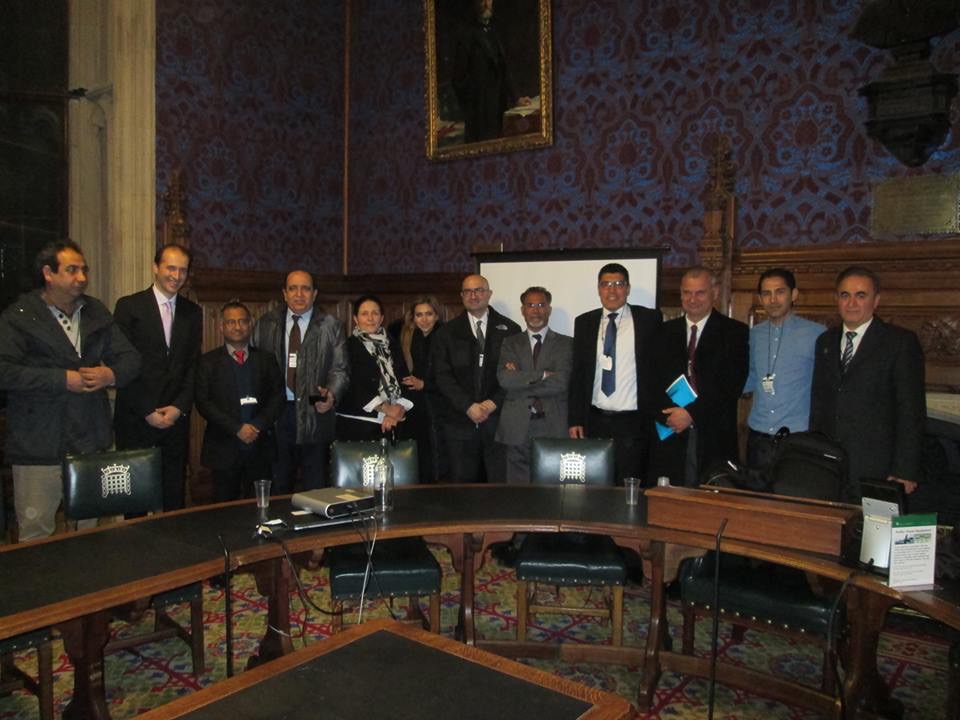Gary Lewis the UNDP Resident Representative in the Islamic Republic of Iran visited Ahvaz in the occasion of World Wetlands Day which is celebrated on 2 February all around the world.
He twitted : “ As wetlands dry out ,one problem is dust and sand storms.Now major problem in Iran .Solutions must be regional ,UN and UNDP can help . “
And after visiting Fallahieh (Shadegan) marshlands he twitted :” spend time on Shadegan wetlands in Ahvaz for World Wetlands Day 2017 .Critical situation ,all hands needed to improve the situation “.
number of local Ahwazis wearing masks on their mouth as a sign of protest ,along with Flahieh (Shadegan) representative in Majles who was also present in the conference held banners and slogans to draw the attention and share their concern about the sand storms and air pollution with the UNDP representative . Slogans such as :” People of My Town Want Clean Air “ .
46 years ago one the same day and on the occasion of International wetlands day , “Ramsar Convention “ was signed . This documents is one of Iran’s oldest international treaties in an attempt to preserve the environment and natural ecosystem and it obliges 158 member countries to preserve the wetlands with international importance .
48 wetlands in Iran are registered in the convention as the wetlands that Iran is obliged to preserve under the convention that was signed in 1971 .
The critical situation of wetlands today ,however is an evident that Iran was not really successful in accomplishing the mission
According to environmental activists ,factors such as male -management ,change of land use , dam building , illegal hunting and fishing , water scarcity and droughts , and developing industrial projects in the watersheds and wetlands are the reason for the critical situation of Ahwaz’s marshlands .
This January UNDP Iran announced the second phase of the conservation of Iranian Wetlands Projects . Second phase is meant to be build on the results and achievement of the first phase .
As sand storms continue to disrupt the lives of Ahwazi citizens and more and more indigenous of marshlands are Iosing their livelihood emigrate from their natural habitat due to drought and pollution of wetlands , activists believe that this problem should be tackled more seriously in order to achieve real results .
We at Ahwaz Human Rights Organisation insist on the importance of reviving the wetlands all over Iran and especially those that have been damaged severely and impacted the everyday lives of the citizens , like the wetlands in south -west areas and sincerely hopes with the cooperation of UN and UNDP Ahwaz wetland be restored.
